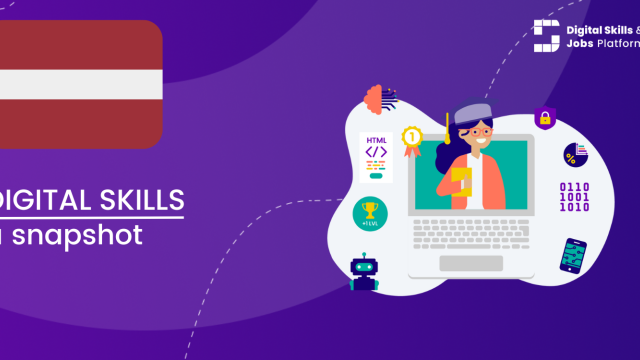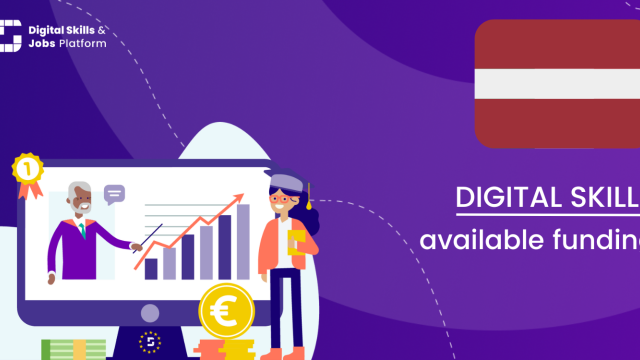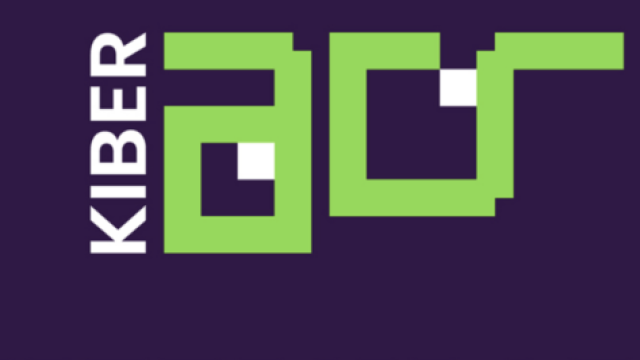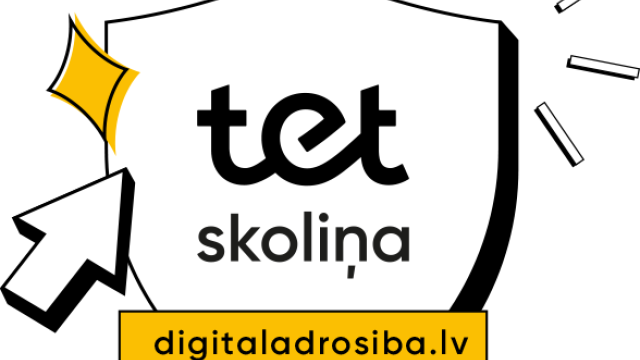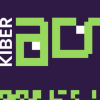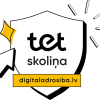Latvia
Latvia is still below the EU average on at least basic digital skills (45.3% vs. 55.56%), and significantly below the Digital Decade target of 80% for 2030. According to the Digital Decade report 2025, Latvia has not surpassed the EU average share of ICT specialists , increasing from 4.4% to 4.9% (EU average - 5%). The share of female specialists in 2024 was 26.8%. Latvia relies on a good level of digitalisation of public services, but lags behind on the deployment of 5G, fibre-to-the-premises, and very high-capacity networks. Latvia has progressed in providing its citizens with access to e-health records.
Latvia has a National coalition for digital skills and jobs led by the Latvian Information and Communications Technology Association (LIKTA).
The Latvian Digital Decade strategic Roadmap 2030 developed by the Ministry of Smart Administration and Regional Development sets out the strategic goals to be achieved by 2030, monitoring their achievement, and the target paths and key measures have been developed.
In line with the 2021-2027 Digital Transformation guidelines, the Latvian Ministry of Environmental Protection and Regional Development prioritizes digital skills development to achieve Digital Decade targets. The eSkills Partnership, founded in 2013 and co-led by LIKTA and the Ministry, serves as a platform for stakeholders to collaborate on digital skills goals. The current version “Latvian Cybersecurity Strategy 2023-2026” was adopted in March 2023 and have dedicated pillar for education and research and activities for digital and cybersecurity skills' development at all levels.
Current priorities of the Latvian National Coalition include upskilling the labour force, aiding SMEs in digital transformation with the National Industrial Policy Guidelines 2021-2027 and integrating digital technology in education as stated in the “Latvian Education Development Guidelines 2021-2027. Moreover, boosting the number of ICT specialists and advancing digital skills for all citizens is a paramount concern.
The country has set national strategies, to achieve goals such as 70% of citizens with basic digital skills by 2027. Additionally, initiatives that focus on promoting digital skills and transformation, and to engage women in digital careers.
Latvia ranks 24th out of the 27 EU Member States in the DESI dashboard for the Digital Decade for the 'At least basic digital skills' indicator, with 64.7% of its population possessing at least basic digital skills.

